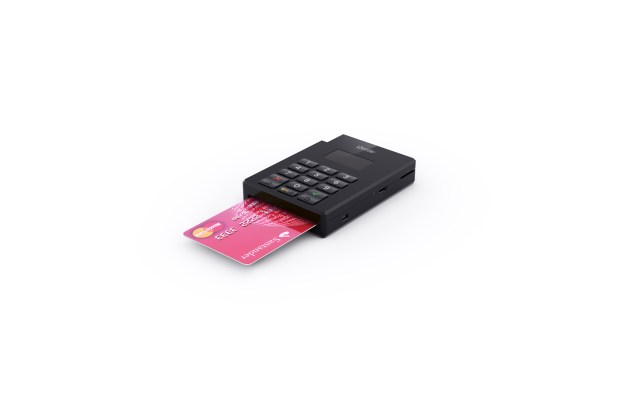With Square, PayPal and other U.S. players slowly rolling out their first international services, local mobile payments startups want to make sure they will keep up, too, and so today, iZettle — sometimes called the “Square of Europe” — is announcing a strategic investment of “more than €5 million” ($6.6 million) from Banco Santander, the largest bank in Europe. A single-digit-millions round may not sound like much when you consider that Square has raised $341 million, $200 million in its last round alone. iZettle is calling this a “strategic investment,” though, with more help coming in the way of distribution and helping iZettle gain more ubiquity in Europe, and possibly beyond.
“We want to bring iZettle to the world, and to do that we must have strategic partnerships with the world’s leading banks,” iZettle CEO and found Jacob de Geer told TechCrunch. “We want to bring iZettle to the world and I mean that literally.”
He would not share more details right now about what this might mean in terms of new country launches, but for starters it will mean that Santander will be offering small business customers in the UK a £50 cash rebate when they buy an iZettle card reader to work with their mobile devices and tie these to their Santander bank accounts. iZettle and Santander have been offering a similar service in Santander’s home market of Spain for a few months already.
The scope for where this could go is interesting: Banco Santander has retail operations extending through the UK and Spain, as well as Latin America, Portugal, Germany, Poland and the U.S., with some €1.388 trillion in managed funds, 102 million customers and 14,392 branches. Today iZettle has services in the UK, Spain, Germany, Sweden, Denmark, Norway and Finland.
It is also somewhat of a change of strategy for iZettle, which, when it picked up $31.4 million in June 2012, had set out a plan to be the biggest player of its kind in Europe — leaving further afield markets like the U.S. to companies on the ground there already. “Our priority is to get the UK fully launched, and then look at other major markets like Spain, Italy, France and Germany to continue building up our transaction volume,” de Geer told TechCrunch at the time. “We’re not interested in the U.S. They’re doing really well with Square and others.” Now, while iZettle may still be pushing its service in Europe, it’s clearly looking elsewhere, too.
As with iZettle’s existing business strategy — taking a 2.75% flat cut on all transactions; offering a payment service that complies with local regulations and links up with a merchants’ smartphone or tablet to the complete the transaction — the idea would be for Banco Santander to offer the reader as a service for small businesses who are not already accepting card-based payments.
“Millions of small business owners and professionals in the markets where we operate need an alternative to conventional credit card terminals, and simple software to manage and analyze their transactions,” said Ramón Tellaeche, head of Santander Cards at Banco Santander, in a statement. “We are strongly committed to innovation that satisfies emerging needs of our customers, we believe iZettle’s innovative mobile technologies will be crucial to those merchants’ near and long term success.”
Like Square, iZettle has also been looking to offer increasingly complete solutions extending beyond simple payments: in its case, iZettle lets merchants also monitor overall revenue, top selling products, transactions, average payment volume and returning customers, to identify a business’ most loyal customers, among other analytics.
The company has raised some $56 million to date with other investors including America Express, Greylock, MasterCard and Index Ventures.
